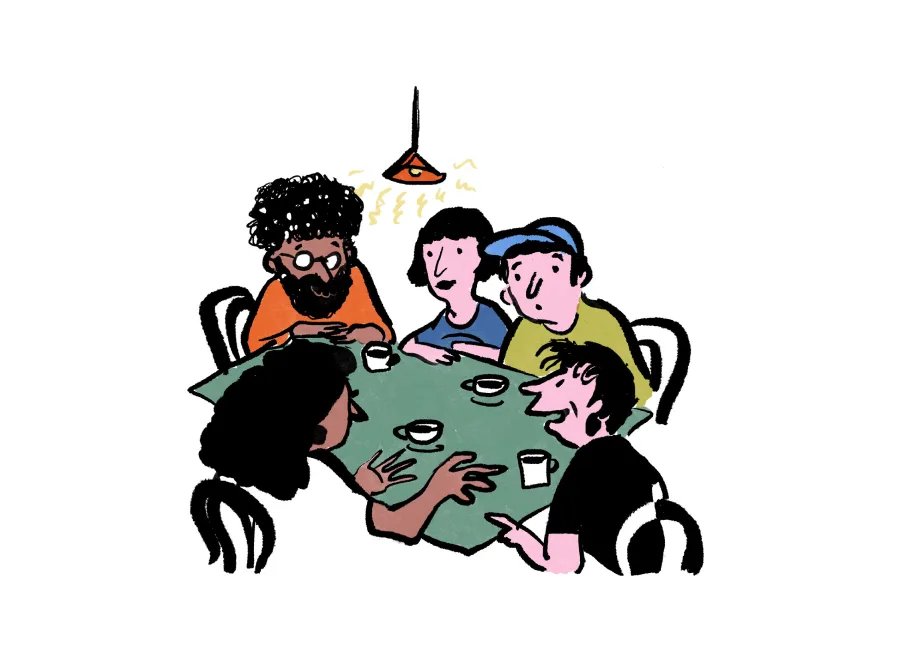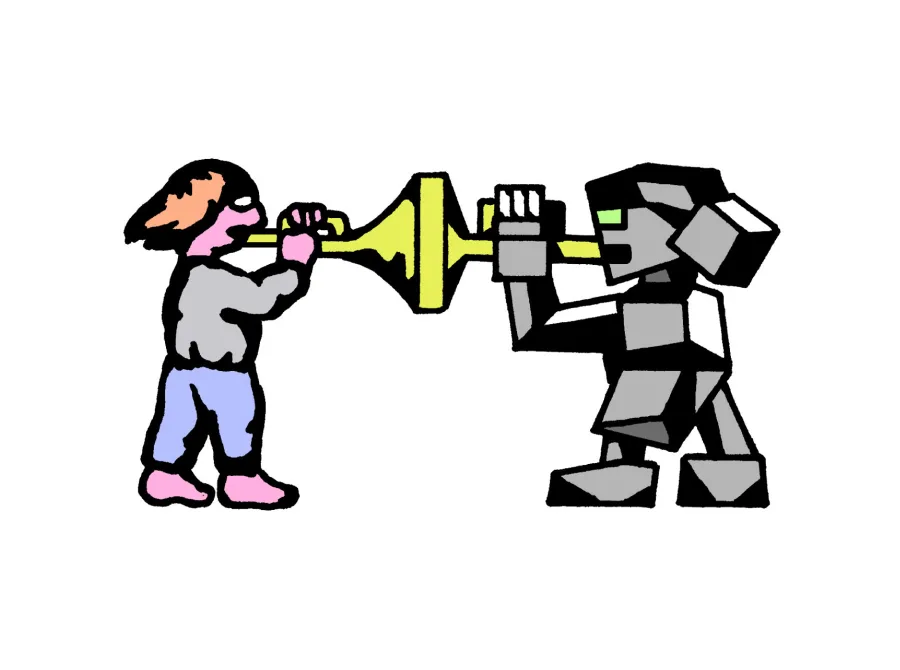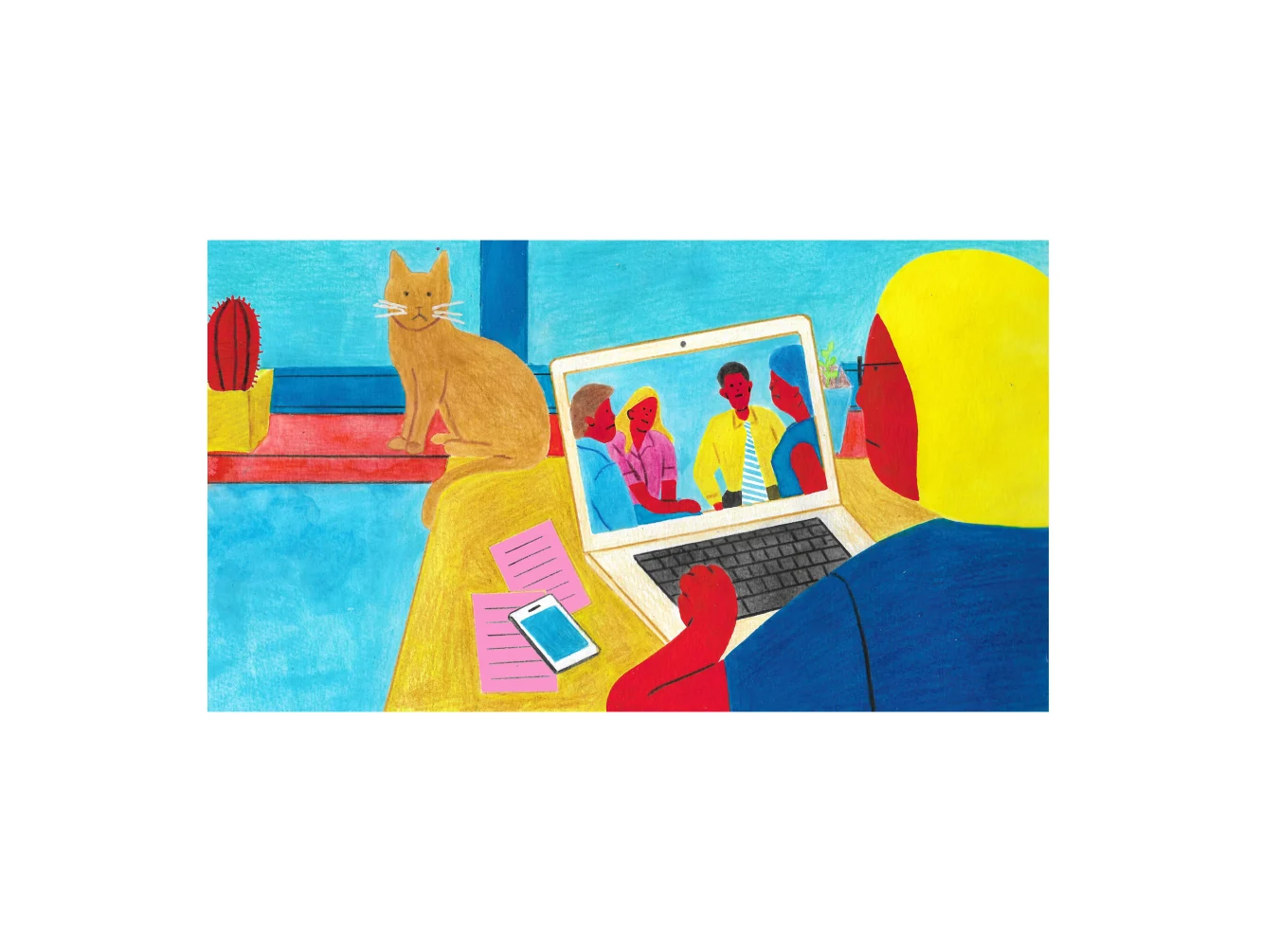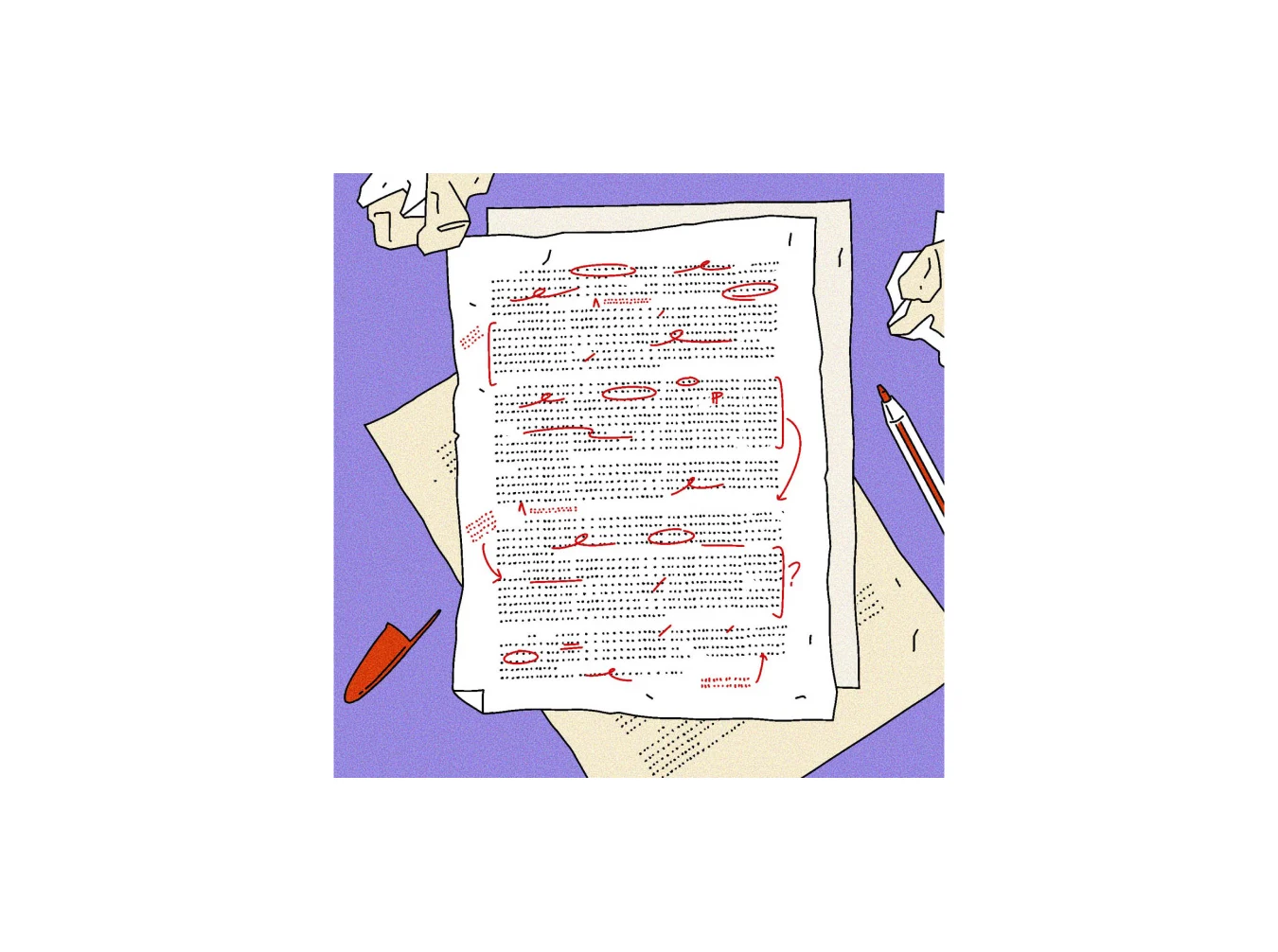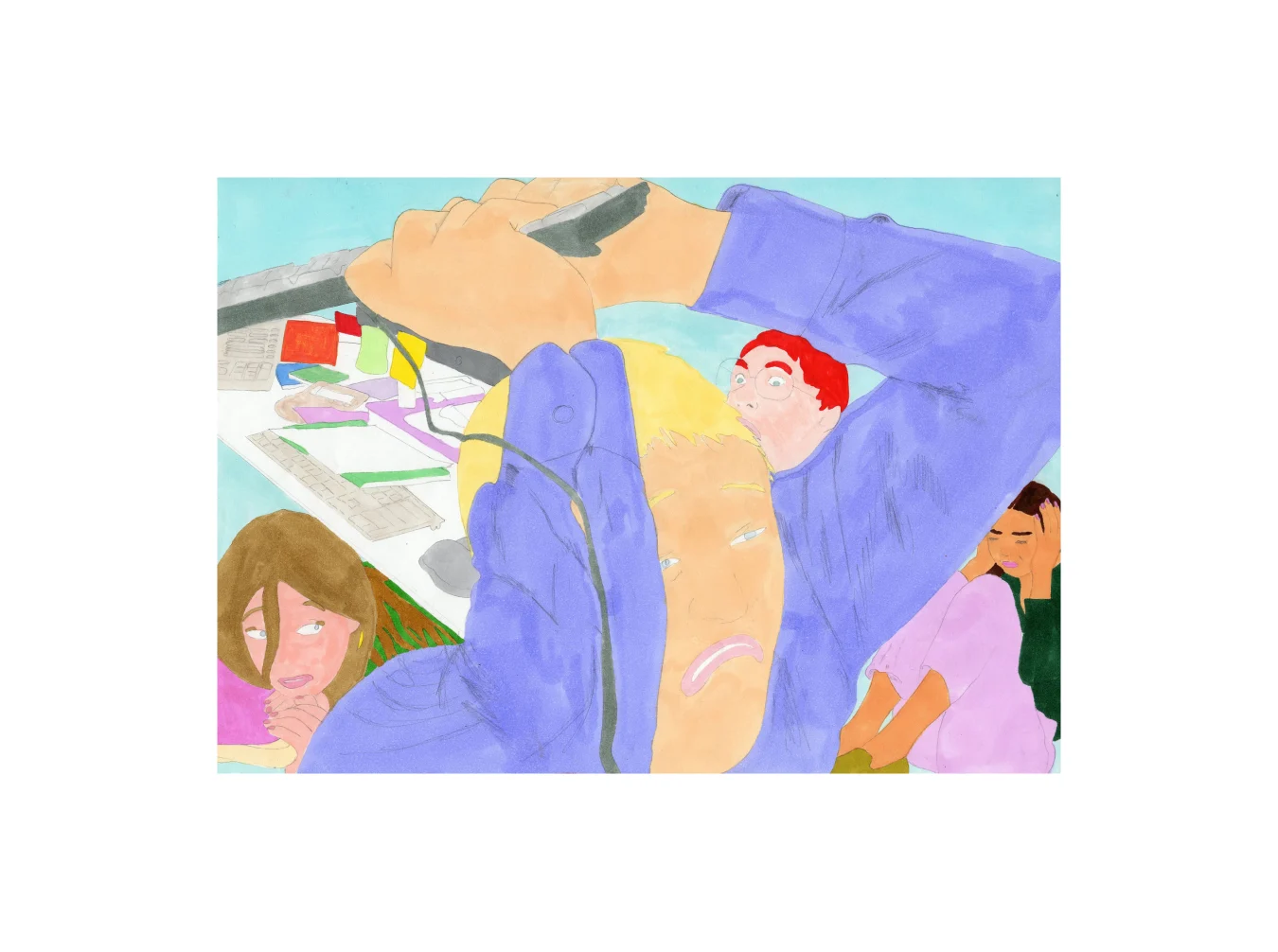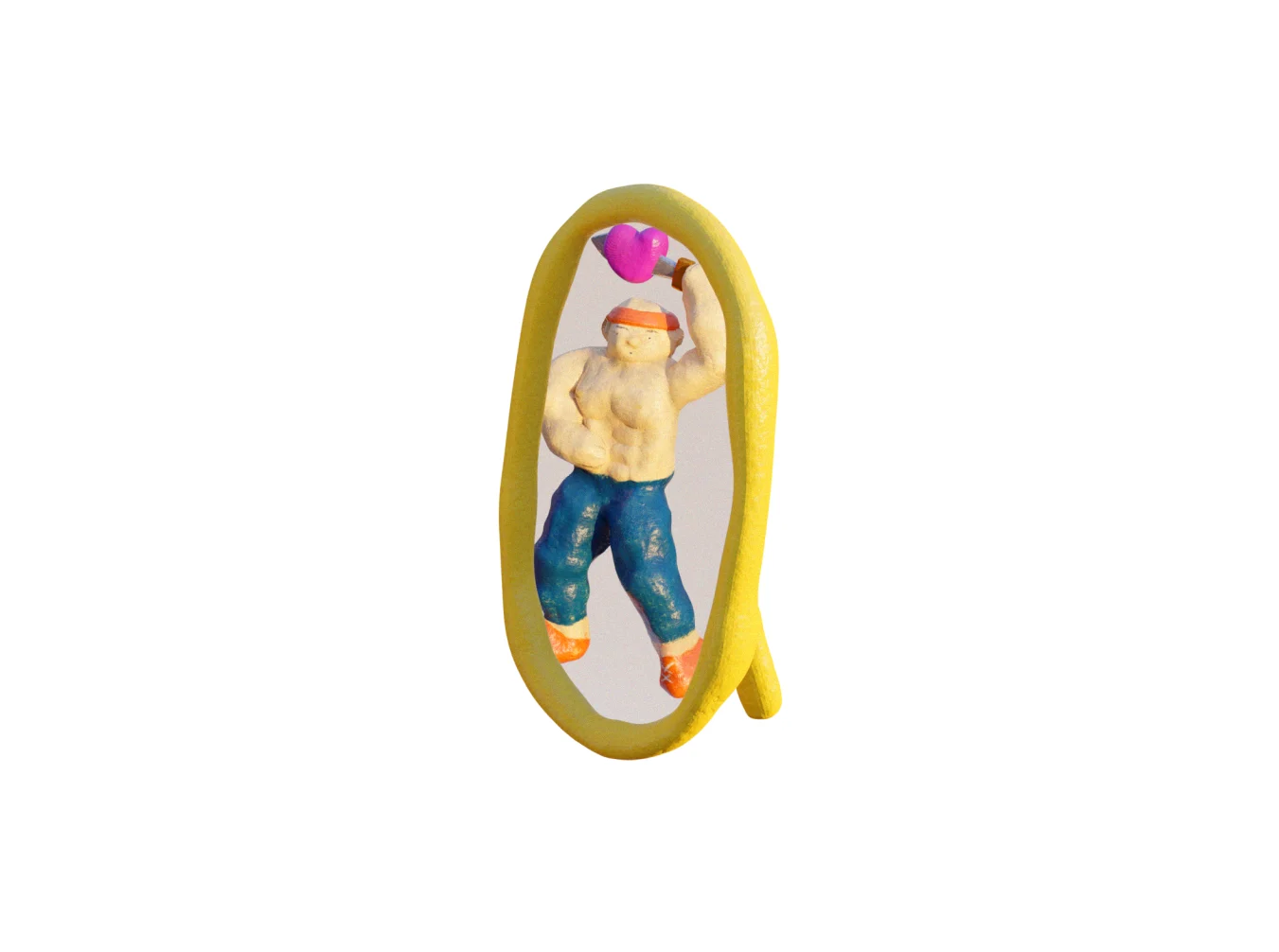

As creatives, we rarely want to think about the tedious parts of running a business—namely, filing your tax return—but if you’re a freelancer, understanding your taxes is paramount if you want to stay on top of your finances. Writer Hannah Ewens talks to leading creatives and creative industry accountants, and lays out everything you need to know about how to do your taxes to fix your finances and grow your wealth.
Two creatives working in photography, film and content and three different creative industry accountants explain everything you need to know about how to do your taxes as a creative to fix your finances and grow your wealth.
Here’s a tedious joke to tell your peers the next time you’re at an industry event and struggling with small talk: “How can you send a creative into immediate fight or flight?” The punchline: “Ask them if they’ve saved for their tax return.” You can almost put any answer about money in that punchline, and it works. This is a generalization, but artists and creatives rarely consider themselves logical numbers people, too. It’s unusual to find illustrators who love spreadsheets and budgets, or writers who adore accounting, or painters who get a kick out of real-world constraints. Creatives want to dream, to create—and let someone else handle the rules, regulations and restrictions.
The trouble is that most of us won’t think about the finer details of our finances until something goes wrong, or our tax return is due. In addition to that, it’s all just plain confusing. Though there are some blogs online written by SEO journalists or generalized accountants, there’s not extensive information out there for creatives who need to do their taxes and don’t want to pay unnecessary tax. Without that information, it’s easy to feel lacking in confidence when it comes to this area of your professional life.
So, we’ve spoken to two leading creatives in their fields and three different top creative accountancies to make this simple guide to doing your taxes.

Consider yourself a business, not just an artist (sorry)
It’s tempting to get lost in your work and be avoidant about money, but that’s a stupid idea. “While I admire the dedication of people who are prepared to suffer for their art no matter what, I also remind them that they are running a business,” says Alex Redmond, managing partner at Artisan Accounts. “If your creative business isn’t giving you the income you need, then something needs to change. The sooner you recognize the problem, the less drastic the solution needs to be.” He advises that you re-evaluate your target client or pivot a certain percentage of your offering to something more commercially viable, so you can spend the rest of your time on the work you prefer to do.
Tayo Yusuff is a director and filmmaker, who has made films for VICE, the BBC, “Chicken Shop Date,” Nike, YouTube and more. As a part of growing his successful career, he doesn’t want to have to waste energy and time worrying about money. “A lot of people just don’t think they should have the mental bandwidth to think about something that is instrumental to their lives—it’s crazy,” he says. “I like having layers of protection.” As such, he has a high-interest savings account and a three-month emergency fund, for when he’s not getting enough work. “Then I have a worst-case scenario long-term emergency fund, which is eight months, and I’m looking to build that up to a year plus, because I’ll probably be freelancing for a long time, so I need to be careful.”
Have a separate business account
Have all your income and expenses for your work being tracked in your business account, and then transfer what you need out of it into your own personal account.
“Make sure you don’t mix business and pleasure,” says Vicki Pascoe, owner and accountant at Creative and Numbers. “Try, from the get-go, to have a separate account for your business—a Monzo or a Starling, or something really straightforward—from your personal stuff. Have all your income and expenses for your work being tracked in your business account, and then transfer what you need out of it into your own personal account to pay for your mortgage, your rent, your bills, all your personal entertaining.” This is not only because it makes it easier for you to keep track of what you’re making and spending related to your business, but because if you get audited, you’ll otherwise have to hand over personal information that’s none of HMRC’s business. If any or all of your invoices are being paid into your personal account, and then you’re moving it over in chunks to a business card for expenses, you’ll have to let them have access to your whole personal account(s). It could potentially make it harder to argue that your tax deductibles are not for personal use, too.
Find the right accountant for your business
I once had an accountant who told me that under no circumstances could I put a Spotify account down as a tax deductible expense, but I was a music journalist. I obviously left that accountant, but the takeaway is simple: find an accountant that works specifically with people in your industry. They might be able to find out if you’re eligible for a specific relief or scheme, know if you can get tax credits or help with funding applications, too. Erin Walls, the director at WW Creative, tells me that her company works exclusively with creatives and understands the nuances between the different industries. “Most of my friends and family are in creative jobs. I realized there was a breakdown between people who have a creative mindset and understanding the information they’re given from their accountant, so I thought I’d set up a business specifically aimed at these people,” she says.
Lindsey Byrnes is a Los Angeles-based photographer and director who shoots for magazines such as Rolling Stone and Nylon, directs music videos and was the first woman to capture the coveted winners’ portraits for the 64th Annual Grammy Awards in 2022. She understands the importance of having a solid financial team in your corner, looking out for your interests. “Look for someone who is passionate about their job because that means they’re staying on top of your accounting,” she says. “Learn the laws yourself, though—they’re there to guide you, not punish you. Be mindful of financial misinformation.”

Whatever you do, start saving for your taxes now, not later
If you save as you go, you know you’ve got enough to pay the tax man. Thinking you’ll earn as much or more money next year is a dangerous game.
When money is tight it’s tempting to not put money aside for your taxes, but it’ll hurt you badly—and long-term—if you don’t. Yusuff considers himself strict in this regard. “I think most people are optimistic when it comes to money, but we can never really have enough.” When he gets paid he puts half of it away for tax, rather than the 40 percent for his tax bracket. “Then once I get to tax return time, I deduct it from my high-interest savings account and keep it moving,” he says. Possessing a similar frame of mind, Walls warns her clients not to be naively optimistic. “We frequently see that if people have a good year and earn good money, they often don’t save the tax, and then the following year they haven’t done as well, but that’s when the tax on that good year is due,” she says. “If you save as you go, you know you’ve got enough to pay the tax man. Thinking you’ll earn as much or more money next year is a dangerous game.”
Make sure you can defend your tax deductibles as business expenses
As a general rule, you need to be able to show that tax deductibles were necessary to do your job or were strongly advised by an agent. The trouble is, Walls says, that “HMRC isn’t one big rulebook, it’s a collection of individuals.” The same expenses can be interpreted completely differently, which makes it difficult to be a hundred percent sure that your expenses will be cleared as above board when it comes to creative jobs. “One individual might look at the accounts and say, ‘Oh, yeah, that’s fine, they work in film and they’re watching Netflix.’ Another individual might be more difficult and say, ‘OK, I know they probably use Netflix for their research, but I bet they watch it on a Friday night for personal use’—and they’ll come for you. It depends if they’re a complete bookworm or not.” Walls warns that if you’re investigated they can ask you to prove what time of day you were watching Netflix, for example, and that usually a compromise has to be struck around an expense being half professional, half personal. “It can get a bit ridiculous, but you have to be very sure you’d be able to argue about whether an expense was for work, for example, link an expense to a current job.” She advises to review and catalog expenses weekly and monthly so that you remember what each expense was (otherwise you will simply forget the who, what and why of each expense).

You don’t have to make payment on account
If paying tax weren’t stressful enough, it’s always a shock when you learn for the first time that HMRC tells you to pay tax for the year ahead, too. But, as Walls says, you don’t have to make the payment on account if you genuinely believe that you will not have as lucrative a year. “HMRC assumes you will make that again. If you know that happened because you got a really great job this summer, and you are very unlikely to get that again next year, you can say to HMRC, ‘I don’t want to make that payment on account because I genuinely don’t think I’m going to earn the same amount of money.’ You can push back.” She offers this with the caveat that if you do exceed those numbers, they’ll likely express their annoyance to you and possibly make a note of it on your records.
Evaluate with an accountant whether to scale up your business to a limited company
Pascoe advises against changing your freelance sole-trader business to a limited company on a whim. Speak to an accountant who understands your trade and your industry first. “Once you become limited, the extra work that goes with it is tenfold from being a freelancer [sole trader],” she says. “I’ll say to people considering the jump, ‘Look, why don’t we see this growth for the next six months, a year, and then we’ll look at whether that’s the right decision. If the decision to become a limited company is brought forward, that’s absolutely fine, but what we don’t want to do is set it up now and then wish we hadn’t.” A big driver of people wanting to be a limited company, Pascoe says, is because they want the kudos and external validation. “It makes you appear perhaps a larger organization than you are.”




